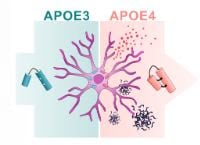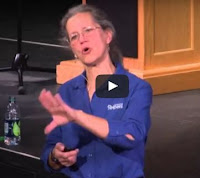
No Matter What I Do, It’s Not Right
Related:


4 Meaningful Thanksgiving Tips


Dancing with Alzheimer’s Like Nobody’s Watchin’

Home Help for Dementia: Timing It, Managing It

5 Communication Tips for Dementia Caregivers
By:
Peter Berger
This site was inspired by my Mom’s autoimmune dementia.
It is a place where we separate out the wheat from the chafe, the important articles & videos from each week’s river of news. Google gets a new post on Alzheimer’s or dementia every 7 minutes. That can overwhelm anyone looking for help. This site filters out, focuses on and offers only the best information. it has helped hundreds of thousands of people since it debuted in 2007. Thanks to our many subscribers for your supportive feedback.
The site is dedicated to all those preserving the dignity of the community of people living with dementia.
Peter Berger, Editor
Share this page To
Dementia Books & Videos on Amazon:
More From Alzheimer's Weekly

How Alzheimer’s Genes Jam Up Brain Cleanings by Immune Cells
Genes PROGRESS NEWS: The most prevalent genetic risk factor of Alzheimer’s is apolipoprotein E4 (APOE4). How does this gene do its damage? A new study

How Hearing Loss is Linked to Cognitive Decline
A doctor who specializes in geriatric medicine explains how hearing devices can be helpful in preventing long-term cognitive decline.

Those Declining Dementia Rates? It’s Exercise, Diet & Education
Dementia incidence has steadily fallen by 20 to 25 percent over the past three decades in the U.S., U.K., Sweden, and the Netherlands. How come?

Can Brain Games Help Alzheimer’s Disease Patients?
MAYO CLINIC VIDEO: Do brain games help those living with Alzheimer’s disease? Dr. Ronald Petersen, director of Mayo Clinic’s Alzheimer’s Disease Research Center says engaging
Visit Alzheimer's Weekly On
Welcome
Alzheimer’s & Dementia Weekly was inspired by my mother’s journey with autoimmune dementia and my dad’s with Parkinson’s dementia.
Walking beside them opened my eyes to the confusion, the courage, and the deep humanity found in families and professionals caring for someone they love.
Since its debut in 2007, this site has had one clear mission:
to separate the wheat from the chaff — to highlight only the most essential articles, studies, tools, and videos from the overwhelming river of dementia-related information.
(At last count, Google receives a new post on Alzheimer’s or dementia every seven minutes.) For anyone seeking clarity or support, that constant flow can be exhausting and discouraging.
Alzheimer’s Weekly filters, translates, and explains what matters most, helping hundreds of thousands of families, clinicians, and care teams around the world make sense of the latest research and best practices.
This site is dedicated to everyone who works—often quietly and tirelessly—to preserve dignity in the community of people living with dementia.
About the Editor
With experience in dementia caregiving, public education, and Alzheimer’s-focused writing—and a professional research background shaped in what many consider one of the world’s top laboratories—I work to make complex findings clear, practical, and genuinely helpful for both families and professionals providing care.
My goal is simple:
Translate the best science into guidance that lightens the load, strengthens understanding, and helps every person with dementia live with dignity.
Peter Berger
Editor, Alzheimer’s Weekly


The video is stopping at five minutes and 54 seconds. 🙁
This video is segmented. Here is a link to a related full-length Teepa Snow video called, "Which Type of Dementia Does She Have?"
Thank you!
The early stages sof Alzheimer's can be hard because both the person with the disease and their caregiver, especially if family or spouse don't understand the difference between what the disease is doing and what is just rude behavior.
So very true! And is especially difficult to distinguish between if the person wasn't nice to begin with.
Phooey, I don't know, in my experience, my grandfather was a very nice man and he turned mean. My mother was a very negative person, she never smiled, and she turned very sweet and smiley.